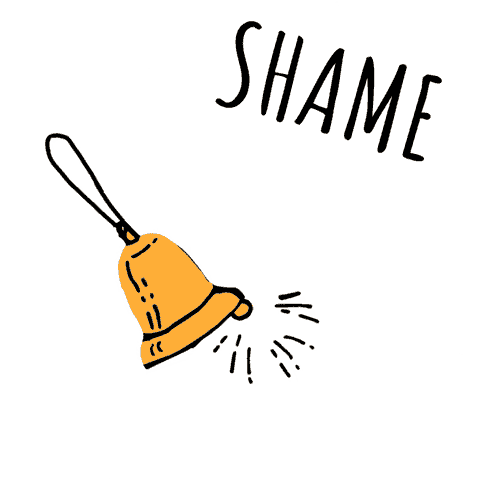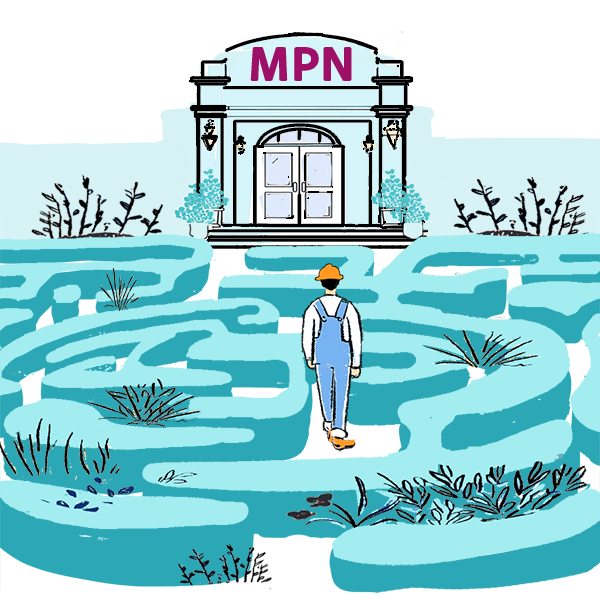CA Committee Passes Disastrous AB 1278

California physicians, it’s time to take a stand.
Last week, the Assembly's Insurance Committee endorsed Assembly Bill 1278, and forwarded it to the Appropriations Committee. Make no mistake: AB 1278 endangers your practice.
This bill will grant unchecked, only nominally regulated network entities almost complete control over Medical Provider Networks (MPNs) and the coordination of injured workers’ care.
Worse, the bill will likely force providers to pay network entities for this care coordination.
AB 1278 will strip injured workers of their choice of physician. Instead, network entities will dictate care within MPNs, at the expense of providers. With the bill’s passage into law, these network entities can compel physicians to accept lower contractual reimbursement rates dictated by the networks — bypassing the state’s Physician Fee Schedule.
However, physicians hold the ultimate power to stop AB 1278.
Every California physician should consider canceling all MPN and Preferred Provider Organization (PPO) contracts. By collectively canceling MPN and PPO contracts, providers can:
- Dismantle MPNs — since MPNs are subject to physician accessibility standards (No physicians, no MPNs)
- Receive 100% Official Medical Fee Schedule (OMFS) reimbursement rates — instead of paying PPOs for the privilege of treating injured workers (No MPNs, no discounts)
Currently, it is nearly impossible for physicians to determine whether an injured worker's employer or insurer maintains an MPN. With no transparency in the MPN system, doctors fall prey to PPOs making (often false) promises of MPN membership in exchange for reimbursement discounts (what we call “Pay-to-Treat”).
AB 1278 will exacerbate this situation by prioritizing the profits of network entities over the well-being of injured workers. Physicians and worker advocates must unite to inform the Assembly of this bill’s disastrous consequences.
In the coming weeks, we will provide talking points, templates, and other resources for physicians to make their voices heard. Together, providers have power. Now is the time to wield it.
CA Legislative Farce - With Special Guest Coventry
Unsurprisingly, last week's Insurance Committee hearing on AB 1278 was used as a platform for network entity Coventry, one member of the middleperson coterie under the Enlyte Group, including Mitchell and Genex.
Lisa Ann Bickford, Director of Government Affairs for Coventry, asserted to the unwitting Assembly members that current law requiring MPNs to list individual physicians instead of scheduling entities “put [Coventry] in a really bad spot,” noting:
“[Providers are] having an issue treating injured workers, now, all of a sudden in the workers' compensation system. This has been particularly problematic for us in areas where we have limited coverage. Um, we really are concerned about losing those providers in areas that are rural areas and have very limited access to medical care.”
Arguably, Coventry put Coventry in a “really bad spot,” not MPNs:
- To treat injured workers, Coventry and other entities use MPNs to pressure doctors into signing discount reimbursement contracts. These contracts reduce reimbursements to far below OMFS rates. The result: providers refuse to treat injured workers.
- Coventry and other entities sell the contractual discounts to bill review entities, which use the discounts to reduce all reimbursements providers receive for treating injured workers. The result: providers refuse to treat injured workers.
- Providers, rural or otherwise, don’t need AB 1278 to treat injured workers. Employers and insurers have the exclusive right to decide which doctors are eligible to treat their workers — which providers are happy to do at financially sustainable OMFS rates.
AB 1278 would not empower providers to treat injured workers. It would simply restrict providers to treating injured workers at the network’s discretion.
Not mentioned in Bickford’s impassioned plea on behalf of country doctors is how networks stand to profit by charging physicians to coordinate care — by meting out reduced reimbursements.
AB 1278 Beneficiaries: Network Entities
Network control of care does not benefit injured workers. It does not benefit providers. It does not benefit employers. So who stands to benefit if AB 1278 passes?
We refer readers to the bottom of the Assembly’s so-called Fact Sheet on AB 1278, where organizations formally supporting the legislation are listed — starting with the bill’s sponsor, the American Association of Payers, Administrators and Networks (AAPAN).
Note the partial list of AAPAN Board members below and the organizations they represent:
Dale White - MultiPlan, Inc. |
Kate Farley-Agee - Coventry |
Dorrence Stovall - Prime Health Services, Inc |
John Green - HealthSmart |
Lisa Anne Bickford - Coventry |
Kevin Tribout - Optum |
Erika James - Enlyte |
Amie Friedberg - Conduent |
Kathy Beckett - MedRisk, Inc. |
Tera O'Hare - Homelink |
Chris Pricco - Paradigm |
George Furlong - accūrō Solutions |
Mystery solved.
AB 1278 “Facts” Debunked
Stretching the limits of generosity in using the term “fact,” the Fact Sheet also offers a 5-point summary of why AB 1278 should pass, which we address point-by-point below.
“This bill would fix these disruptions in the MPN process to allow injured workers to focus on healing and return to work as fast as possible through the following:
- Allows an injured worker to authorize the initial primary treating physician to request that an electronic copy of the Employee Notification be provided to the initial primary treating physician’s office.
First, there is no value in “allowing the injured worker to authorize” the doctor to request a copy of the Employee Notification that the employer uses an MPN.
Yes, it is almost impossible for doctors to figure out if an MPN applies. But that could be solved with a simple database. Instead, AB 1278 would have the doctor ask the injured worker (who is already in the office for treatment) for permission to ask the employer for workers’ comp insurance information, then call that insurer for MPN information.
No one can seriously believe the “solution” of asking for permission to make phone calls creates less friction and more access to care for injured workers.
Instead, this “solution” guarantees that network entities will wield the power of coordinating care for injured workers, because it will remain impossible for a physician to ascertain whether an injured worker’s employer uses an MPN.
- Clarifies that an MPNs’ roster of providers may include the contact information of persons or entities that provide patient scheduling, management, or coordination services.
Second, allowing MPNs’ roster of providers to include “entities that provide patient scheduling, management, or coordination services” is legalese for a very straightforward concept: networks want to be listed instead of individual physicians so that networks can dictate where workers seek care — and how much of what employers pay for that care goes to doctors.
Roughly translated, this portion of the legislation says little more than “ka-ching” for Coventry & friends; no need to dress the business model up in manufactured concern for the wellbeing of injured workers.
- Requires the DWC to notify an MPN that they have been denied and allows the MPN 45 days to respond to any request for information to fix identified deficiencies.
Third, requiring the DWC to soften its procedure for allowing a denied MPN to fix its “identified deficiencies” may help networks, and may even be reasonable — but it does diddly for injured workers.
This is arguably an attempt by network entities to defang the DWC’s enforcement of current laws and regulations that apply to the MPNs. While physicians drown in nonsensical regulations and monetary penalties, network entities seek less DWC oversight.
- Clarifies that an MPN has the exclusive right to determine their providers as long as the Assembly Bill 1278 (Rodriguez) Medical Provider Network Notice to Treating Providers As Amended March 27, 2023 physician is licensed in California and regardless of the provider’s business incorporation structure.
Fourth, there is no need to “clarify” that “an MPN has the exclusive right to determine their providers” because only employers and their workers’ comp insurers have the “exclusive right” to determine the members of their network, per Labor Code Section 4616(d).
More telling is the fact that this portion allows MPNs to include state-licensed physicians “regardless of the provider’s business incorporation structure.” If networks are “coordinating” care, they can send injured workers to any state-licensed provider, bypassing current care standards dictated by MPN regulations.
This is a second attempt by the network entities to defang the DWC and its enforcement of the current laws and regulations that apply to the MPNs (Rules, schmules).
- Clarifies that an existing license for an MPN will continue while the DWC reviews a renewal application.
Fifth, much like the third point, streamlining the MPN approval and renewal processes may make life easier for Coventry (and MedRisk, Homelink, Paradigm, etc.) but not for injured workers or providers.
This is the third attempt by the network entities to eliminate as many protective MPN regulatory requirements as possible (Regulate providers but de-regulate network entities).
AB 1278 will allow barely-regulated networks to effectively negate the Physician Fee Schedule by charging claims administrators one rate for network-coordinated care, paying physicians a lower rate, and presumably retaining the difference.
Consequently, injured workers will likely have a harder time finding care since physicians are generally averse to treating patients at unsustainable reimbursement rates.
This bill is not about helping injured workers access care. It’s about helping networks profit by controlling injured workers' access to care.
Protect your practice. Harness the power of daisyBill software, data, and expertise for faster, better workers’ comp billing. Reach out to learn how we can help.
CONTACT US
DaisyBill provides content as an insightful service to its readers and clients. It does not offer legal advice and cannot guarantee the accuracy or suitability of its content for a particular purpose.



.png)
